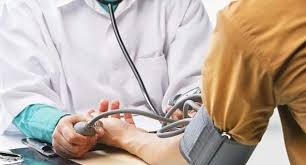Source: thehealthsite.com
In recent years, scientists have witnessed a disturbing trend regarding the health condition of teenagers. Apparently, more and more teenagers are falling prey to high blood pressure. This is reason for worry as developing this condition so early in life can have serious health implications in the long run.
The health complications that teenagers with high blood pressure can have later on in life are many. A study of adolescent obesity and hypertension in urban India, published in the International Journal of Community Medicine and Public Health,discovered that out of 1,486 adolescent respondents, 7.5 per cent suffered from pre-hypertension symptoms and 5.4 per cent had hypertension.
What exactly is blood pressure?
It is a system of measurement in medical terms. In medicine, blood pressure is measured by the force of blood pushing against the artery walls. Your body works in a complex system. When your heart beats, blood is pumped through your arteries round your body to give it the energy and oxygen it needs. This blood pushes against the sides of the blood vessels or against the artery walls. If the force or pressure is too high, it can harm the arteries and weaken the heart. When you check somebody’s blood pressure, you will see two numbers. The higher number is systolic pressure and the lower number is diastolic pressure.
What causes blood pressure in a teenager?
But just one reading will not be enough to confirm that your teenage son or daughter is suffering from this condition. There can be temporary spikes due to anger, anxiety or physical activities. Usually, if doctors don’t know the cause of this condition, they refer to it as primary. But if the cause is known, i.e., if it is due to illness or lifestyle choices, it is called secondary.
Most secondary BP issues are due to medical conditions like kidney and heart diseases, hormonal or endocrine disorders, stress and anxiety. It could also result from substance abuse and the use of prescription drugs like corticosteroids or birth control pills.Hormonal changes and rapid growth spurts can also cause a temporary spike in cholesterol and blood pressure levels. But since this is temporary, there is nothing to worry about.
Risk factors for high BP
High blood pressure is often triggered by some external factors. It could also be the result of some underlying health condition. Usually, overweight teens, especially boys, fall in the high-risk category. A family history of high BP or cardiovascular disease as also a mother who smoked during pregnancy significantly increases the risks.
Symptoms to watch out for
This condition is also known as ‘the silent killer’. There are usually no symptoms at all to warn a person that something might be wrong. But if BP levels go up very high, then you will notice a flushed and red face. Hot flashes are also very common with this condition.Other symptoms to look out for are headaches, heaviness in the head, pain in the chest, breathlessness and palpitation. If BP shoots up really high, it can also cause seizures.
Diagnosis of the condition
The doctor will, first of all, rule out any family history of high BP. He will take notice of medical history, diet, level of physical activity and also his or her activity level at school. He may also recommend a physical examination of his patient. This can involve urine tests, blood tests, and ultrasound examination of the kidneys. This will help him to figure out the cause of the condition.
Line of treatment
Treatment depends on symptoms, age and general health. It will also depend on the severity of the problem. If it is due to any medical reasons, that has to be taken care of first. If your teen has an unhealthy lifestyle, you need to have a serious talk with him about changing his habits.
A doctor will not prescribe medicines immediately if he can avoid it. Instead, he may just prescribe a few changes in lifestyle and diet.
On the diet front, your doctor may ask you to have lots of fruits and vegetables, whole grains and low-fat or non-fat dairy products. He may also ask you to cut down on salt and sugar and limit your intake of rich, fatty foods. Lose weight, exercise more, avoid smoking and drinking. Learn how to manage your stress and anxiety issues. You will soon see a drop in you BP.
What are the complications?
High blood pressure increases a person’s risk of coronary heart disease and stroke. However, this is rare in children and teenagers. But as they grow older, complications can manifest themselves because of this problem. And, by the time they are in their twenties, they may display a thickening of their arteries, which can cause heart attacks and even strokes. According to researchers from the American Heart Association, organ damage from high blood pressure doesn’t only occur in adults.It can happen to teenagers too. They are of the view that imaging of the heart may be useful to determine how aggressive treatment should be.
What you can do
Take up some physical activity even if it means just going for a walk round the block. You can easily lower your blood pressure by doing this daily for 20 to 30 minutes. Also keep an eye on your salt intake and eat more potassium-rich foods. Try to avoid caffeine and don’t get pressured in having alcohol by your peers. The best thing to do if you have high blood pressure is to manage your stress levels. Take professional help if needed. But try to get a grip on our stress and anxiety issues. Eating dark chocolate also helps. But the most important thing to do here is lose weight.
